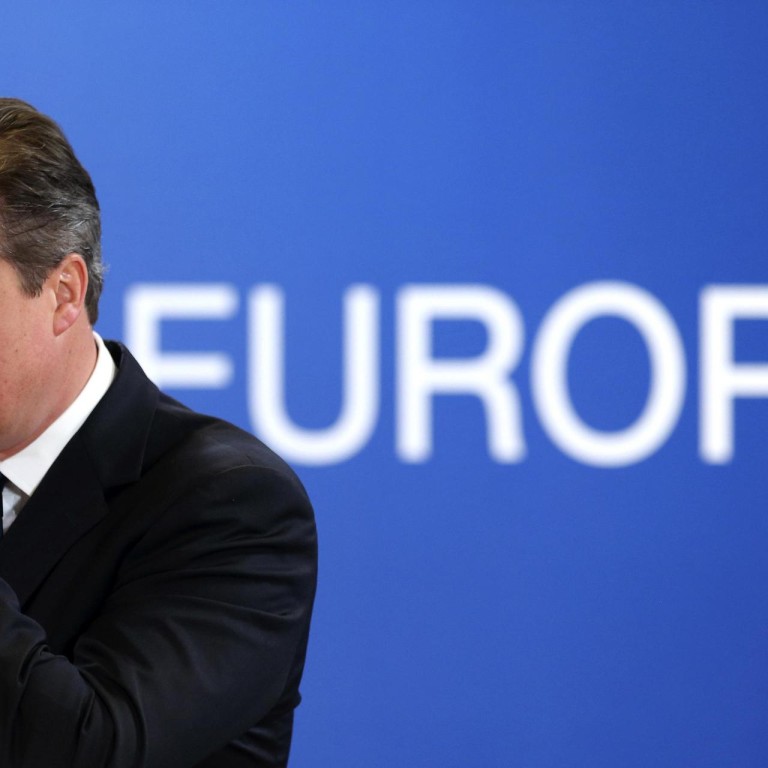
Juncker named to top EU job in bitter blow for British PM Cameron
Cameron lost battle to stop Juncker getting top Brussels job, but could still win war for EU reform
David Cameron took Britain closer to the exit door of the European Union following a tumultuous EU summit at which his fellow leaders inflicted a crushing defeat on the prime minister by nominating Jean-Claude Juncker for one of the most powerful jobs in Brussels.
In what marked a rift in the UK's long and troubled relationship with the continent, Cameron was left isolated as 26 of 28 countries endorsed Juncker as head of the European Commission for the next five years.
"This is a bad day for Europe," said the prime minister on Friday as he voiced bitterness over the nomination of Juncker. "Of course I'm disappointed."
Many in Britain - where a history of Euroscepticism reached new heights with the victory of the anti-EU UK Independence Party in last month's European Parliament elections - support his stance against Juncker, who is seen as too much of a federalist.
Some 43 per cent of voters believe Cameron was right to try to block Juncker's appointment, against 13 per cent who said he was wrong in a Financial Times/Populus poll released last week.
And Cameron could still achieve the major EU reforms he wants, including repatriation of some powers, depending on how he reacts now, according to some analysts.
"The Juncker episode is clearly a substantial defeat for David Cameron, and without remedy, increases the risk of Brexit (a British exit from the EU)," said Mats Persson, director of the London-based think-tank Open Europe.
"However, it is far from the end of the story for sweeping European reform."
British newspapers were unanimous yesterday that Cameron's defeat had increased the risk of the country leaving the 28-nation bloc, with warning on its front page, "Britain nears EU exit".
But they were split on whether Cameron or Brussels was to blame, with several saying he was right to stand in "splendid isolation" on an issue of principle.
Persson suggested that a perceived increase in the risk of Britain leaving the EU could prompt fellow leaders to swing behind Cameron.

Britain could be handed a key portfolio or one of its allies could take an important role such as the presidency of the European Council, the EU's political arm, currently filled by Herman Van Rompuy.
Asked whether the appointment of Juncker made it more likely that he might campaign for a referendum vote, Cameron said: "My goal is exactly the same as it was before today, which is to act in Britain's national interest. I believe Britain's national interest lies in reforming the EU, holding a referendum about that reform in the EU and recommending that we stay in a reformed EU."
But Eurosceptics are not convinced and say he can expect a lengthy fight to secure reform.
"The battle over Mr Juncker was but the first skirmish in a long negotiation of a new relationship for the UK with the rest of the EU," Eurosceptic MP John Redwood wrote on his blog.
"If the rest of the EU continue to be so unsympathetic to UK requirements, more UK voters will draw their own conclusions about the desirability of our continued membership."
Daniel Hannan, a Tory MEP, wrote in his blog: "The game is up ... If David Cameron couldn't prevent the appointment of Jean-Claude Juncker as president of the European commission, no one will believe that he can deliver a more flexible EU, with more freedom of action for its member nations."
